Girl with liver transplant: Wants to hug her mother after waking up
On October 16, 108 Military Central Hospital informed about the second blood-type incompatible liver transplant performed at the hospital.
The liver transplant was performed on October 7. The recipient, a 17-year-old girl, is now stable, while the liver donor, her biological mother, is in good health.
Ms. Th. (mother of patient H.) shared that 2 years earlier (March 2023), her daughter was diagnosed with a liver tumor, with complications of tumor rupture, and underwent surgery in the province. After that, H. was transferred to the National Children's Hospital for examination and treatment, and had two embolization interventions.
In April 2025, the patient underwent the third embolization intervention at the 108 Military Central Hospital. However, the liver tumors continued to grow and increase in size. Therefore, the patient was indicated for a liver transplant.
When the doctor explained the liver transplant indication, the mother did not hesitate and immediately donated her liver to her child.
"Every parent wants their child to be healthy from birth. At 17 years old, she still has a whole future ahead of her, I want to donate my liver to my daughter," Ms. Th. shared.
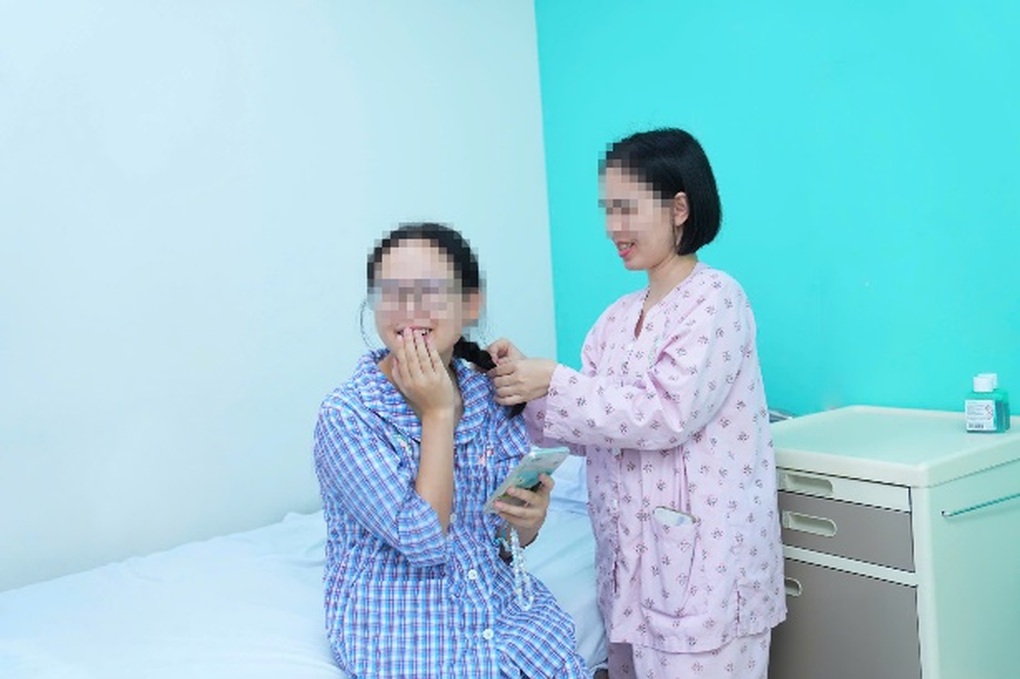
Ms. Th. and her daughter before surgery (Photo: L.Huong).
MSc. Dr. Nguyen Hoang Ngoc Anh, Department of Hepatobiliary - Pancreatic Surgery, 108 Central Military Hospital, said that Ms. Th. and her daughter do not have the same blood type (the child has blood type O, the mother has blood type B).
For ABO-incompatible liver transplantation, the most important issue is to reduce the amount of anti-A and/or B antibodies in the recipient's serum to a safe level so as not to induce excessive humoral immune responses against the transplanted liver.
"We evaluated the donor's blood group antibody titer, then adjusted the antibody titer, treated desensitization with immunosuppressants combined with plasma exchange 3 times, and when the antibody titer was at a safe threshold, performed a liver transplant," said Master Ngoc Anh.
On the morning of October 7, the liver transplant was performed. Ms. Th. hopes that her child will have stable health, not have to worry about illness, and not have to go to the hospital as often as before.
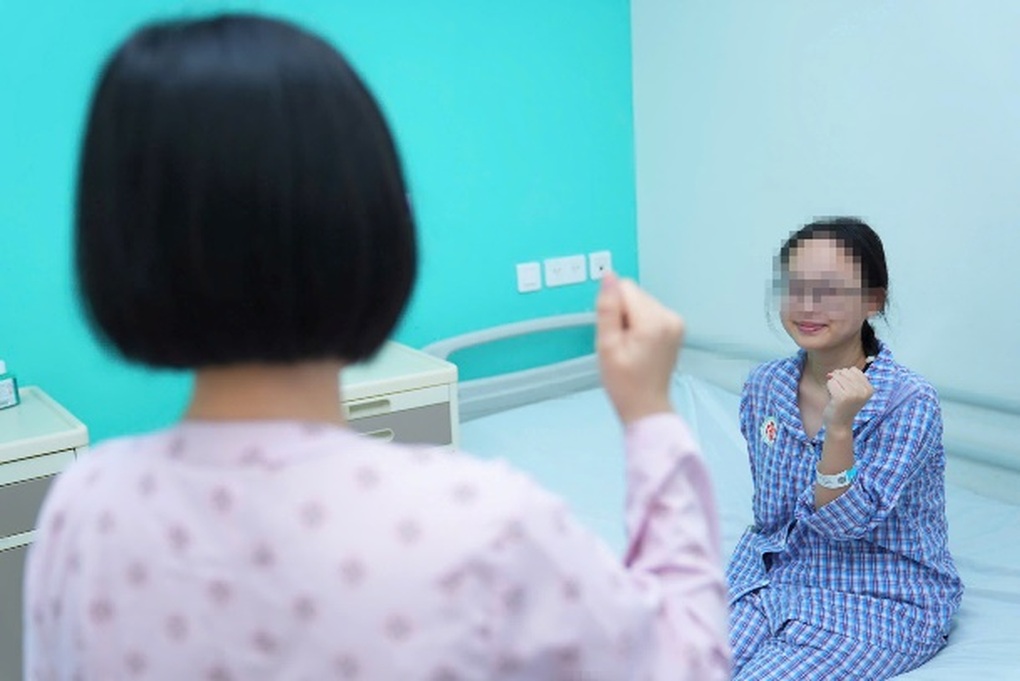
The mother encouraged her daughter before they both entered the operating room (Photo: L.Huong).
After taking the liver from a living donor, doctors underwent 8 hours of surgery to successfully perform a liver transplant on the 17-year-old girl.
According to Associate Professor, Dr. Vu Van Quang, Deputy Head of the Department of Hepatobiliary and Pancreatic Surgery, the liver transplant for the patient was very difficult. Because the girl had had two previous surgeries, there were adhesions in the patient's abdomen.
During surgery, the doctors had to remove adhesions. Second, the patient had multiple tumors in the liver. Meanwhile, the donor had abnormalities in the biliary tract. When performing the biliary anastomosis on the graft, care must be taken to avoid biliary leakage or stenosis.
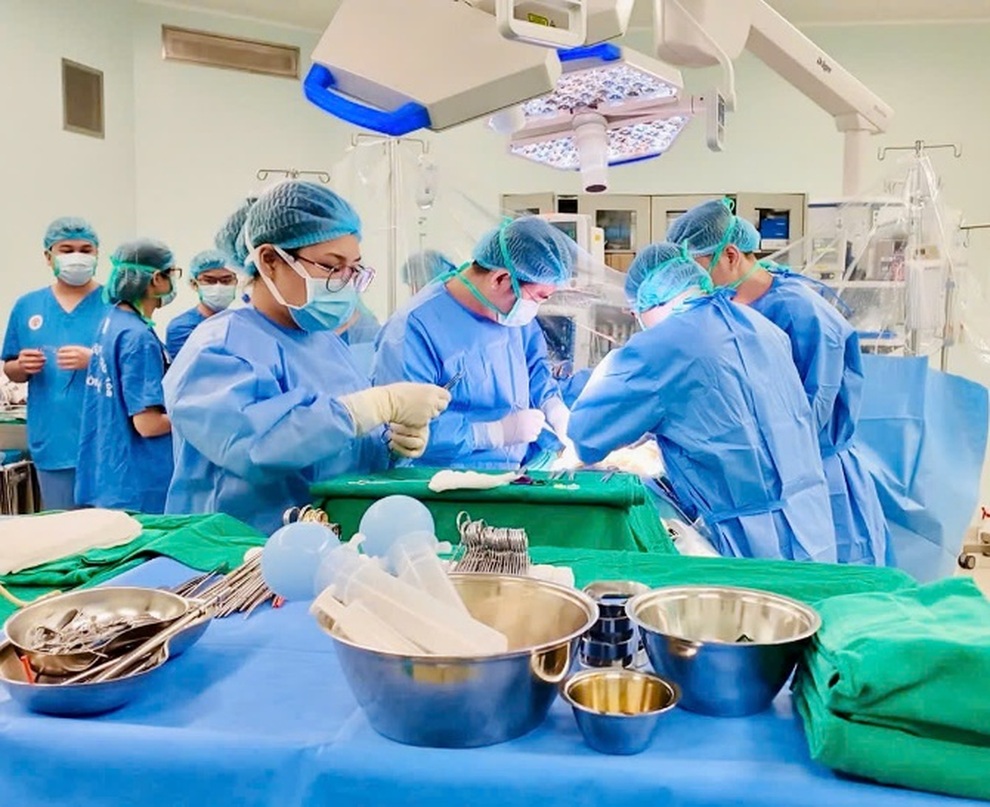
This is the second incompatible blood type liver transplant at 108 Central Military Hospital (Photo: L.Huong).
A week after the transplant, Ms. Th. was allowed to visit her daughter. Both mother and daughter were moved and happy to see that both were recovering well. Ms. Th. was happy that her daughter was healthy and would soon be able to go to school with her friends.
"At first, I didn't want my mother to donate her liver because I was afraid she would be hurt. When she encouraged me, I agreed, but I was very worried about her. When I woke up after the liver transplant, the first person I thought of was my mother. I just wanted to see her right away and hug her," the young girl shared.
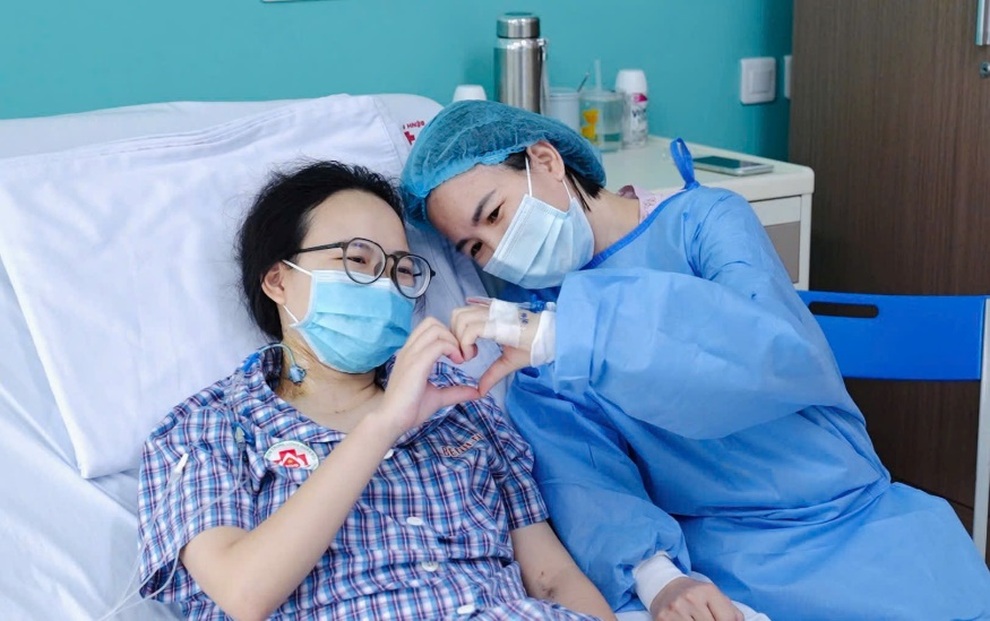
Mother and daughter met one week after liver transplant (Photo: L.Huong).
After a week, the mother was discharged from the hospital. The patient had a liver transplant, and her health recovered well, the transplanted liver functioned normally, and she moved quickly.
Incompatible liver transplantation increases the patient's chance of survival
According to doctors, the increasing demand for organ transplants has raised the issue of increasing the source of donated organs.
In the past, transplantation from living donors with ABO blood type incompatibility, including liver transplantation, was a contraindication due to the high risk of rejection. However, recent advances in immunomodulatory therapies have broken the barrier of ABO blood type compatibility, thereby increasing the availability of organ donations for patients.
Currently in Taiwan (China), Japan and Korea, liver transplantation from ABO-incompatible living donors is no longer a contraindication but has become a routine treatment method, with post-transplant outcomes said to be equivalent to those of blood-type compatible transplants.
Associate Professor Quang said that in Vietnam, organ transplantation from ABO-incompatible blood group sources has been performed on kidney transplant patients and on liver transplant groups in children, but has not yet been performed on liver transplants in adults.
Adult immunity is more complex than in children, the number of liver transplant patients is increasing, and the supply of donated livers is limited. The implementation of allogeneic liver transplantation helps increase the chance of survival for those who need liver transplants.
Source: https://dantri.com.vn/suc-khoe/me-hien-gan-cuu-con-gai-17-tuoi-20251016154156293.htm


![[Photo] Da Nang: Water gradually recedes, local authorities take advantage of the cleanup](https://vphoto.vietnam.vn/thumb/1200x675/vietnam/resource/IMAGE/2025/10/31/1761897188943_ndo_tr_2-jpg.webp)




![[Photo] Prime Minister Pham Minh Chinh attends the 5th National Press Awards Ceremony on preventing and combating corruption, waste and negativity](https://vphoto.vietnam.vn/thumb/1200x675/vietnam/resource/IMAGE/2025/10/31/1761881588160_dsc-8359-jpg.webp)
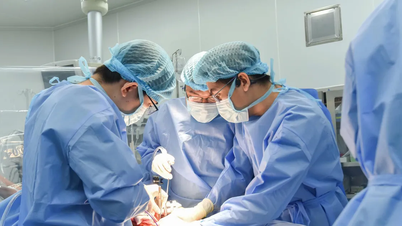

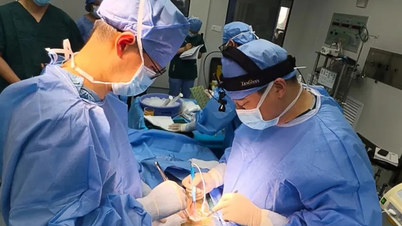

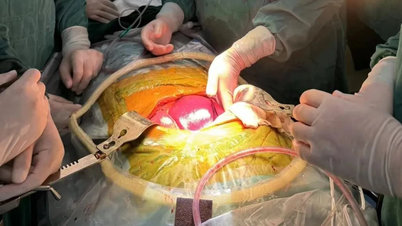

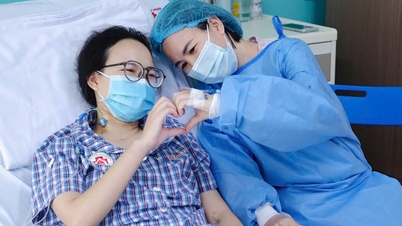
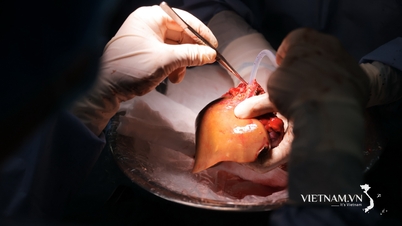


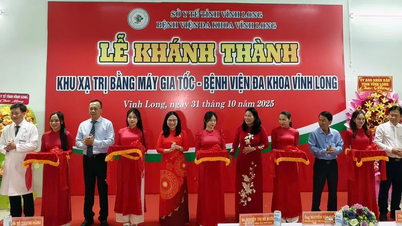
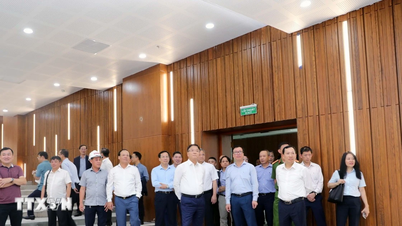


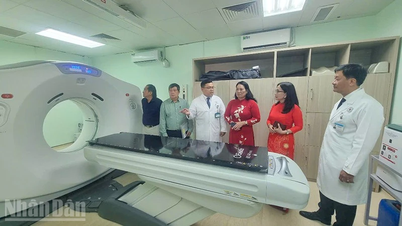

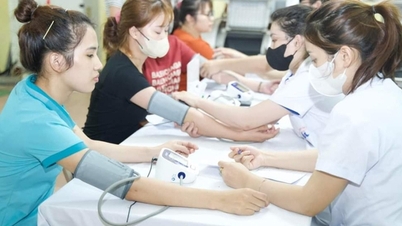







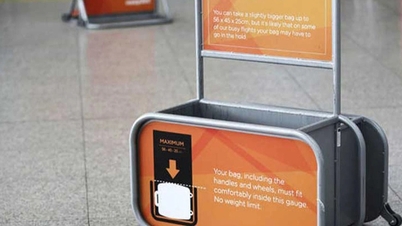
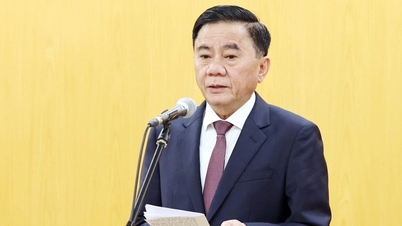
































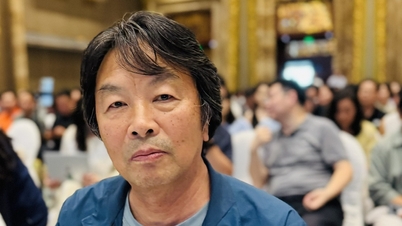
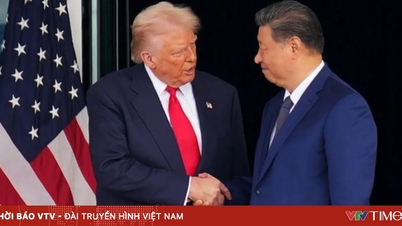











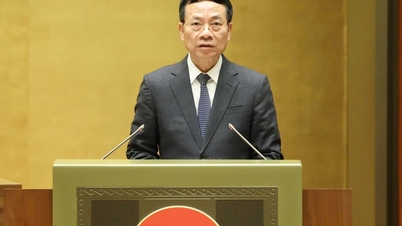
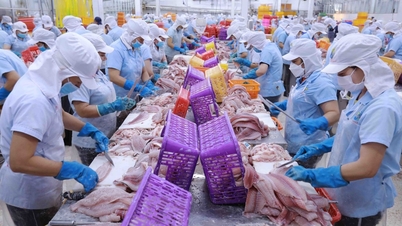
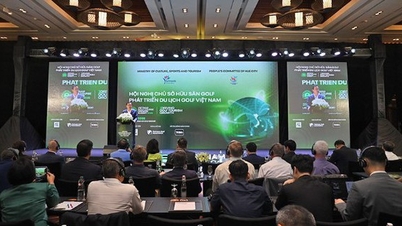




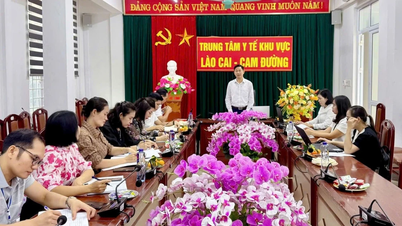




















Comment (0)